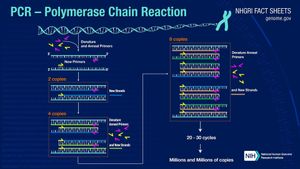The ginger compound furanodienone demonstrates significant potential for treating gut inflammation through activation of the pregnane X receptor (PXR) in mice.
Recent findings have unveiled the remarkable abilities of furanodienone (FDN), one of the major components of ginger (Zingiber officinale), to act as a selective ligand for the pregnane X receptor (PXR). This discovery is particularly timely, as numerous patients globally struggle with inflammatory bowel disease (IBD), including Crohn's disease and ulcerative colitis. The costs of managing these conditions are staggering, with estimates nearing tens of thousands of dollars per patient each year. Notably, the effectiveness of current treatments remains limited, driving the need for new therapeutic options.
Co-authors of the research highlight the alarming rise of IBD cases, especially in areas where lifestyles are rapidly changing and adopting Westernized diets. The prevalent use of ginger for medicinal purposes over the last 5000 years has laid the groundwork for exploring its components for medicinal value. Clinical trials have already indicated ginger's potential efficacy for alleviating symptoms of ulcerative colitis, but the specific active compounds and their mechanisms have been largely underexplored.
Employing advanced techniques, including mass spectrometry-guided natural product discovery, the researchers were able to isolate FDN and confirm its receptor-selective properties. Binding studies revealed FDN attaches strongly to PXR, activating anti-inflammatory genes and mitigating colitis without harming other tissues. The selective nature of FDN was evidenced by oral administration resulting in pronounced improvements in colitis models, including decreased weight loss and tissue damage, without liver toxicity risks often associated with PXR agonists.
"We show FDN binds within a sub-pocket of the PXR ligand binding domain, leading to favorable therapeutic outcomes," the researchers stated. Their innovative approach involved treating DSS-induced colitis mice with doses of FDN, which yielded results comparable to traditional treatments.
Histological assessments indicated significant preservation of tissue integrity, reinforcing FDN's promise as a therapeutic agent. The results indicated enhanced levels of detoxifying enzymes and reduced inflammatory cytokines, showcasing FDN’s ability to restore gut health effectively.
Studies of human biopsies have established PXR’s role as integral to maintaining intestinal homeostasis, pointing to its widespread implications for IBD treatment. The observation of FDN’s anti-inflammatory properties opens new avenues for research, particularly investigating its combined effects with other substances such as steroids, which can yield amplified therapeutic effects through synergistic interactions.
"Oral treatment with FDN alone was able to significantly mitigate systemic inflammation and colitis... highlighting its potential therapeutic application for treating IBD," the study authors emphasized. FDN's potential for safe, effective treatment options positions it as not only accessible but potentially invaluable for patients, especially those disadvantaged by the high costs associated with traditional drug therapies.
Given the growing global burden of IBD and the associated healthcare challenges, the findings from this research present compelling evidence supporting FDN's role as both a treatment and preventive measure for colonic diseases. Future studies addressing the combination of FDN with other natural product components could yield promising strategies to manage IBD more efficaciously.
Overall, FDN presents itself as a prime candidate for developing new IBD therapies, merging traditional herbal remedies with modern scientific validation to improve the quality of life for millions suffering from these debilitating conditions.



